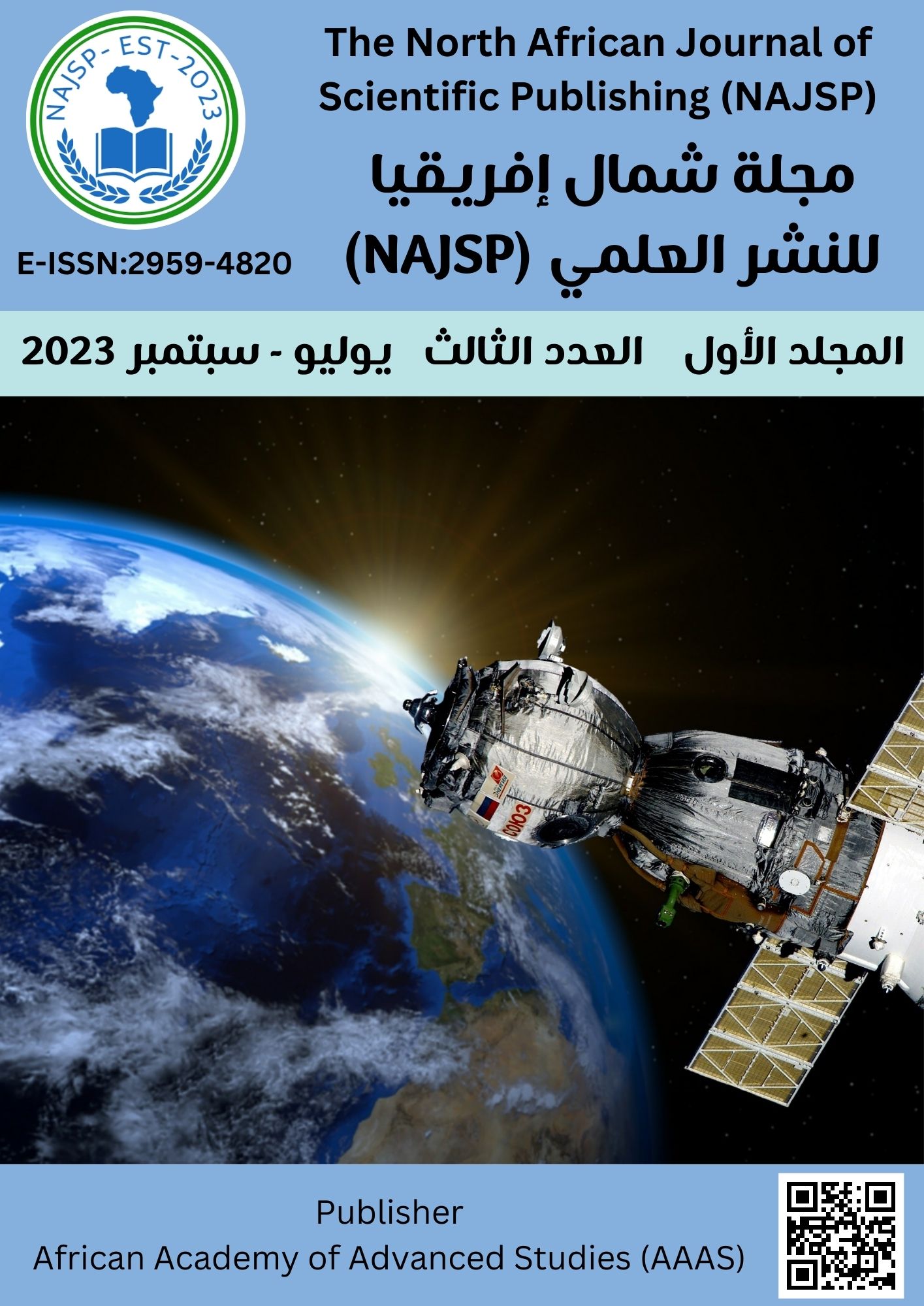Factors Affecting the Stages of Decomposition in Burnt Remains
DOI:
https://doi.org/10.65414/najsp.v1i3.56الكلمات المفتاحية:
Stages of decomposition، Post-mortem interval (PMI)، burnt remains، skeletonizationالملخص
Estimation decomposition and PMI for burned remains in scenes of crimes is considers as one of the most difficult problems in the field of forensic investigation because the classical thanatology methods cannot be used in case of burning corpses because the fire will burn the skin, lack the tissues and destroy the body, For this reason other methods like entomology have to be used in case of burning for study stages of decomposition and PMI estimation, This study was done to investigate the influence of burning on body decomposition, and insects succession, and in order to develop a useful approach for the PMI estimation. In this study we used 14 corpses of gutted rabbits (1kg) and divided into two groups to perform two experiments, 8 rabbits were used in the first experiment and 6 in the second one , in each experiment 2 rabbits were used as control samples and the rest were burned, three different flammable liquids in different amounts were used as accelerants to burn the rabbits , the results showed that during the fresh stage in spring was shorter compared to winter and the active decay was approximately equal, the burned samples in each experiment were faster in decomposition than the control samples, the clothed samples reached the dry stage faster than non-clothed samples, the advanced decay was very long in kerosene samples, the spring experiment was faster than the winter experiment due to the rose of temperature, we concluded that the burned remains reached the dry/skeleton stage before the non-burned remains, temperature plays an important role in the rate of decomposition and affects PMI estimation where the decomposition process was faster during the warm seasons than during the cold seasons, clothed corpses reached the skeleton stage earlier than without clothes corpses and finally oviposition plays an important role in the speed of decomposition and affects by temperature.
التنزيلات
منشور
كيفية الاقتباس
إصدار
القسم
الرخصة
الحقوق الفكرية (c) 2023 Salheen Grimida, Addokali Zobeida, Zahrah M. Eisay, Hamza Khalifa Ibrahim

هذا العمل مرخص بموجب Creative Commons Attribution 4.0 International License.







